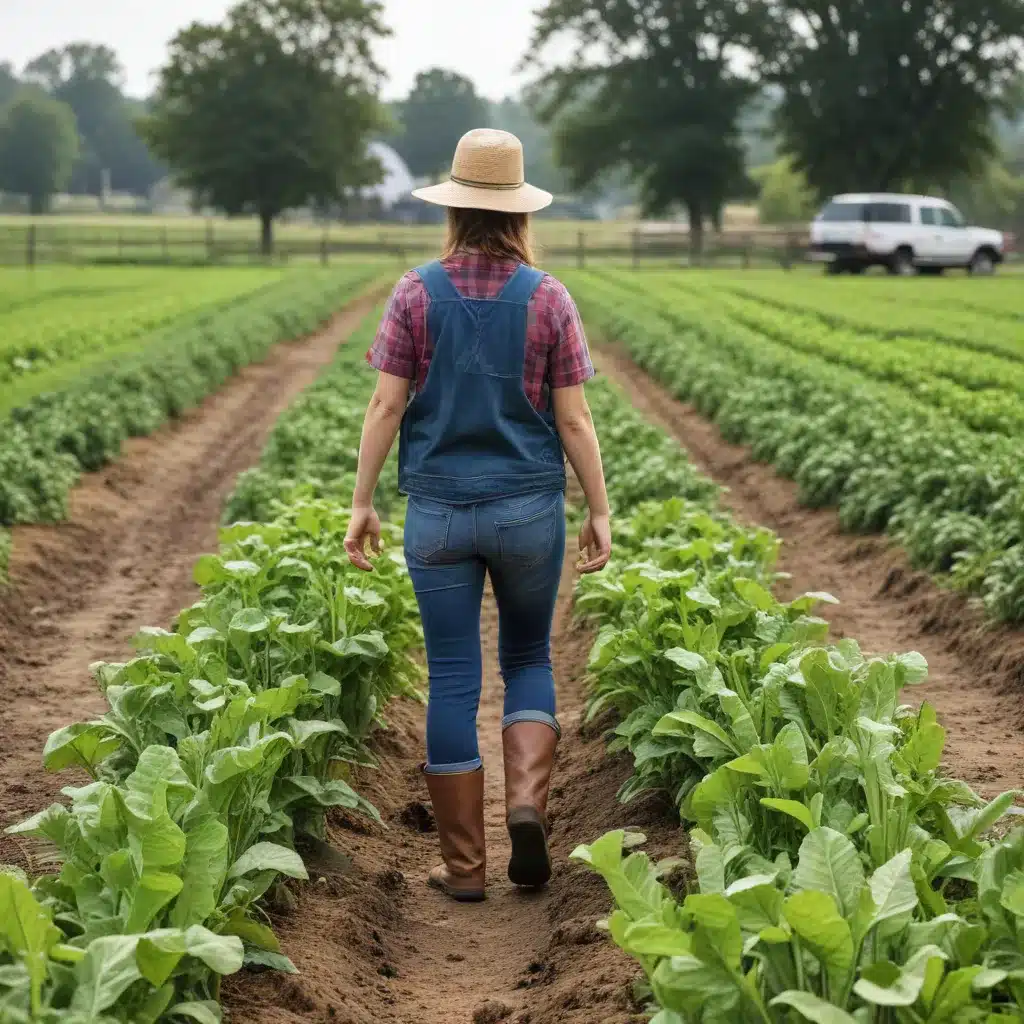
Crooked Pines Farm is excited to invite you on a journey of discovery as we explore the wonders of sustainable agriculture. Through an immersive series of farm tours and engaging discussions, we’ll delve into the innovative practices that are shaping the future of farming and food production.
Regenerative Farming Techniques
At the heart of sustainable agriculture lies the principle of regeneration. Crooked Pines Farm has embraced a range of regenerative farming techniques to enhance soil health, promote biodiversity, and foster a thriving ecosystem.
One such practice is crop rotation, where we strategically alternate the crops grown in each field. This not only disrupts the life cycles of pests and diseases but also helps to replenish soil nutrients, reducing the need for synthetic fertilizers. Cover cropping, the practice of growing plants specifically to protect and enrich the soil, is another key component of our regenerative approach. These living groundcovers prevent erosion, suppress weeds, and add organic matter to the soil, improving its water-holding capacity and nutrient levels.
Another essential technique we’ve adopted is no-till farming. By minimizing soil disturbance, we’re able to preserve the delicate web of microbial life that is crucial for healthy, productive soils. This, in turn, enhances the soil’s ability to sequester carbon, helping to mitigate the impacts of climate change.
Integrated Pest Management
Crooked Pines Farm is committed to reducing our reliance on synthetic pesticides and embracing more holistic approaches to pest control. Our Integrated Pest Management (IPM) strategy combines various techniques to maintain a balanced ecosystem, where natural predators and beneficial insects play a crucial role in keeping pests in check.
Through biological control, we introduce predatory insects and other organisms that prey on the pests that threaten our crops. Mechanical control methods, such as installing physical barriers or using traps, also help to deter and manage pest populations without the use of harmful chemicals. Additionally, we employ cultural control practices, such as crop rotation and the strategic placement of beneficial plants, to create an environment that is less favorable for pests to thrive.
Environmental Impact of Agriculture
Sustainable agriculture is not just about optimizing production; it’s also about minimizing our environmental footprint. At Crooked Pines Farm, we prioritize practices that nurture the land and its natural resources.
Soil Health and Fertility
Healthy, fertile soil is the foundation of sustainable agriculture. We focus on organic matter management, incorporating compost, cover crops, and other organic materials to enrich the soil and support the diverse array of soil organisms that are essential for nutrient cycling and plant growth.
Water Conservation
Water is a precious resource, and we’re committed to using it judiciously. Through irrigation efficiency, we employ techniques like drip irrigation and moisture-sensing technology to minimize water usage and ensure that every drop is utilized effectively. We also implement strategies to mitigate runoff and enhance water infiltration, preventing nutrient and topsoil loss while recharging groundwater supplies.
Biodiversity and Ecosystem Services
Crooked Pines Farm is a haven for a wide range of flora and fauna. By preserving habitat for native species and creating corridors for wildlife movement, we foster a thriving ecosystem that provides invaluable ecosystem services, such as pollination, pest control, and nutrient cycling. Our commitment to pollinators is particularly strong, as we’ve planted a diverse array of flowering plants to support the vital work of bees, butterflies, and other pollinating insects.
Farm Business and Economics
Sustainable agriculture is not just about environmental stewardship; it’s also about building a resilient and profitable farm business. At Crooked Pines, we’ve embraced a range of strategies to diversify our operations and create new revenue streams.
Farm Diversification
In addition to our core crop and livestock production, we’ve explored value-added products, such as artisanal jams, pickles, and baked goods, which allow us to capture a greater share of the food dollar. We’ve also integrated agritourism into our business model, offering farm tours, educational workshops, and interactive experiences that connect the community with the origins of their food.
Sustainable Supply Chains
Crooked Pines Farm is proud to be part of a growing network of local and regional food producers. By forging strong relationships with local markets, co-ops, and certification programs that promote sustainable practices, we’re able to ensure that our products reach consumers who share our values and appreciate the care we put into every harvest.
Community and Social Aspects
Sustainable agriculture is not just about the farm; it’s about the entire community. At Crooked Pines, we’re committed to being a hub of education, engagement, and social impact.
Food Security and Accessibility
We believe that everyone deserves access to nutritious, locally-grown food. That’s why we partner with community organizations to bring our produce to urban areas and food deserts, ensuring that all members of our community can enjoy the benefits of fresh, sustainable ingredients.
Farmer Education and Outreach
Crooked Pines Farm is proud to be a part of the Cooperative Extension network, where we collaborate with agricultural experts to provide hands-on learning opportunities for aspiring and experienced farmers alike. Through farm tours, workshops, and mentorship programs, we’re empowering the next generation of sustainable agriculture leaders.
As you embark on this journey with us, we invite you to explore the wonders of Crooked Pines Farm and witness firsthand the transformative power of sustainable agriculture. Join us as we cultivate a future where land, community, and nourishment come together in perfect harmony.
For more information on our upcoming farm tours and discussion series, please visit crookedpinesfarm.com.


